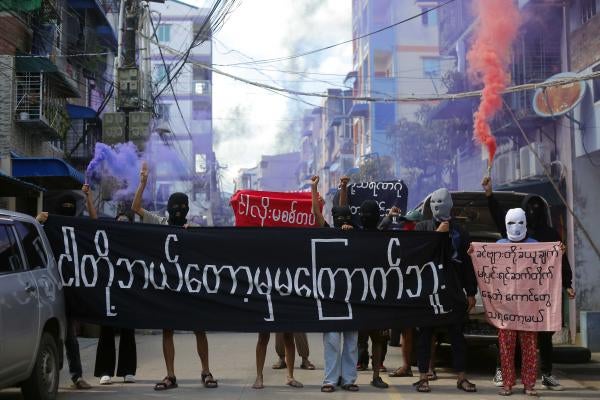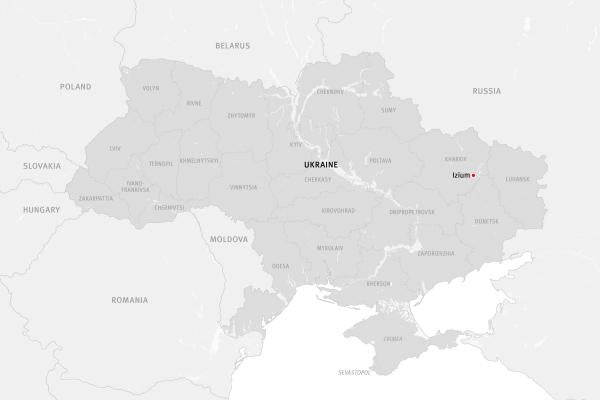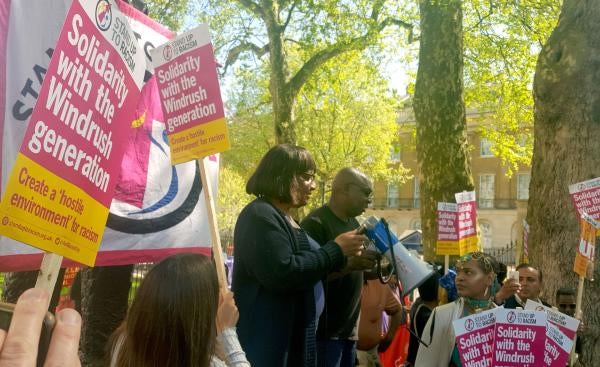Myanmar has been in absolute freefall ever since the military coup on February 1, 2021.
On that day, the military detained the country’s elected civilian officials, including de facto leader Aung San Suu Kyi. And from that moment to today, the junta has brutally cracked down on all opposition in almost every conceivable way.
At least 17,000 protesters and activists have been arrested and 2,900 killed. Security forces have carried out arbitrary arrests, torture, sexual violence, mass killings, and other abuses.
It all amounts to crimes against humanity.
But the junta’s abuses don’t stop there. They’ve also expanded military operations, and junta forces have been responsible for attacks on civilians that amount to war crimes against ethnic minority populations in Kachin, Karen, Karenni, and Shan States. The military has used “scorched earth” tactics, burning villages in Magway and Sagaing Regions.
The junta has blocked humanitarian aid from reaching millions of displaced people and others at risk in conflict areas.
In Rakhine State – where the Rohingya minority have long faced systematic abuse and discrimination that amounts to crimes against humanity and acts of genocide – security forces have imposed new restrictions on movement and aid. The restrictions have worsened food and water shortages and increased the risk of preventable diseases and severe malnutrition.
The UN Office for the Coordination of Humanitarian Affairs estimates that at least 17.6 million people in Myanmar are in dire need of humanitarian assistance. Fighting since the coup has displaced more than one million people internally, while another 70,000 refugees have fled to neighbouring countries. (This is on top of the hundreds of thousands who fled earlier military atrocities.)
Two years of horrors later, what is the world doing about it? In short: not enough.
A landmark UN Security Council resolution on Myanmar in December denounced the military’s abuses since the coup. However, it fell short of imposing a global arms embargo or referring the country situation to the International Criminal Court – both key steps.
Targeted economic sanctions imposed by Canada, the EU, UK, and US have had limited effectiveness because of poor enforcement. Other key governments such as Australia, Japan, and member states of the Association of Southeast Asian Nations (ASEAN) have failed to enact any targeted sanctions since the coup.
Without serious outside pressure, Myanmar’s spiral of atrocities will continue through a third year and beyond.










